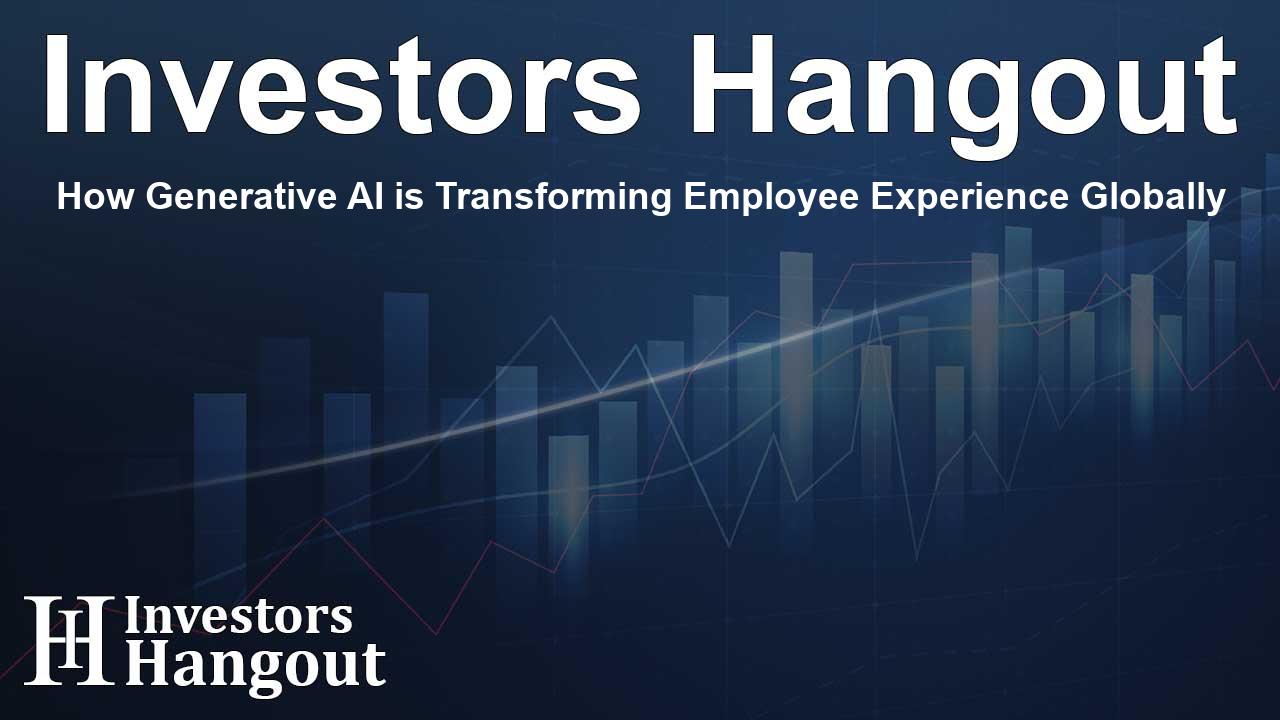How Generative AI is Transforming Employee Experience Globally

Understanding the Challenge of AI in the Workplace
Generative AI is rapidly making its way into the workplace, yet a significant number of employees appear unprepared for this transition. Recent insights into employee experience have revealed that many workers lack the necessary skills to navigate AI technologies effectively, often raising concerns about fairness and feeling unsupported in adapting their roles. As companies rush to adopt AI, the potential for widening disparities instead of enhancing productivity looms large.
Insights from Employee Research
In a recent survey drawing insights from thousands of employees across North America and Europe, it was revealed that while 71% of workers are utilizing AI tools at some level, only a modest 15% claim that their teams fully capitalize on these technologies. This highlights a critical gap in AI integration within different levels of an organization.
Understanding Adoption Disparities
Interestingly, the study found that individual contributors are notably lagging in AI usage, with only 35% reporting their involvement, as opposed to 68% of managers and 82% of executives who are harnessing AI to augment their tasks.
The Shift in Workloads
Moreover, an overwhelming majority of managers and executives—between 81% and 85%—have noted that their workloads have significantly changed due to AI integration. They also reported a pressing need for new skills, a concern echoed by 84% to 90% of upper management compared to just 67% of individual contributors. This disparity suggests that the responsibility for navigating AI changes has not been evenly distributed throughout organizations.
Trust and Perceptions of AI
A pivotal aspect of effective AI implementation lies in trust. Many employees expressed uncertainty about the fairness and transparency surrounding AI usage within their organizations. Only 47% of individual contributors claimed to understand the decision-making processes regarding AI, with a similar percentage feeling that decisions made with AI support were fair.
Generational Perspectives on Trust
Particularly concerning is the level of trust among Gen Z employees, who, despite engaging actively with AI, reported the lowest trust levels in their organizations' ethical usage of AI. Only 62% of Gen Z employees expressed confidence in the ethical implications of AI, in stark contrast to trust levels of 72% to 74% seen in older generations.
Employee Concerns About AI
Employee apprehension regarding AI is also palpable, with 53% worrying about potential bias or discrimination arising from AI-driven decisions, and 38% remaining unclear about how AI will influence their job roles. These concerns underscore the necessity for organizations to communicate effectively about the changes AI will bring and the implications it holds for current and future job practices.
Addressing Skills and Equity Gaps
To address these gaps and bridge disparities, organizations must focus on clear communication regarding AI tools, equipping managers to lead their teams through transitions, and addressing skill deficiencies to ensure that all employees can benefit from AI advancements. It is critical to implement employee experience tools that translate insights into actionable strategies.
The Future is Human-Centered AI
Ultimately, organizations that wish to seize the opportunities AI presents must take a proactive approach. The study serves as a stark reminder that while AI can drive productivity, it is also a significant litmus test for organizational culture and employee trust. To achieve the desired outcomes, organizations need to adopt a human-centered strategy in their AI implementations.
About Perceptyx
Perceptyx stands as a leader in the employee experience realm, helping organizations to harness behavioral science to foster growth and transformation. Their approach incorporates advanced AI capabilities to create a more engaged and effective workforce. By addressing employee needs thoughtfully and thoroughly, organizations can navigate the challenges and opportunities of AI integration, paving the way for a more equitable and productive future.
Frequently Asked Questions
What did the recent study reveal about AI usage among employees?
The study indicated that while a majority of employees are aware of AI usage, very few are leveraging it effectively in their roles.
How do managerial perceptions of AI differ from individual contributors?
Managers report a greater engagement with AI tools and recognize the need for new skills, whereas individual contributors remain less involved and informed.
What factors contribute to trust issues regarding AI among younger employees?
Young employees, particularly Gen Z, express concerns about the ethical use of AI and often feel left out of key decision-making processes involving AI.
What strategies can organizations adopt to improve AI integration?
Clear communication, manager training, and addressing skill gaps are critical for effective AI integration and ensuring equity among employees.
Why is a human-centered approach crucial for AI adoption?
A human-centered approach helps organizations build trust, transparency, and engagement, making AI a tool for enhancing employee experience rather than a source of anxiety.
About The Author
Contact Kelly Martin privately here. Or send an email with ATTN: Kelly Martin as the subject to contact@investorshangout.com.
About Investors Hangout
Investors Hangout is a leading online stock forum for financial discussion and learning, offering a wide range of free tools and resources. It draws in traders of all levels, who exchange market knowledge, investigate trading tactics, and keep an eye on industry developments in real time. Featuring financial articles, stock message boards, quotes, charts, company profiles, and live news updates. Through cooperative learning and a wealth of informational resources, it helps users from novices creating their first portfolios to experts honing their techniques. Join Investors Hangout today: https://investorshangout.com/
The content of this article is based on factual, publicly available information and does not represent legal, financial, or investment advice. Investors Hangout does not offer financial advice, and the author is not a licensed financial advisor. Consult a qualified advisor before making any financial or investment decisions based on this article. This article should not be considered advice to purchase, sell, or hold any securities or other investments. If any of the material provided here is inaccurate, please contact us for corrections.
